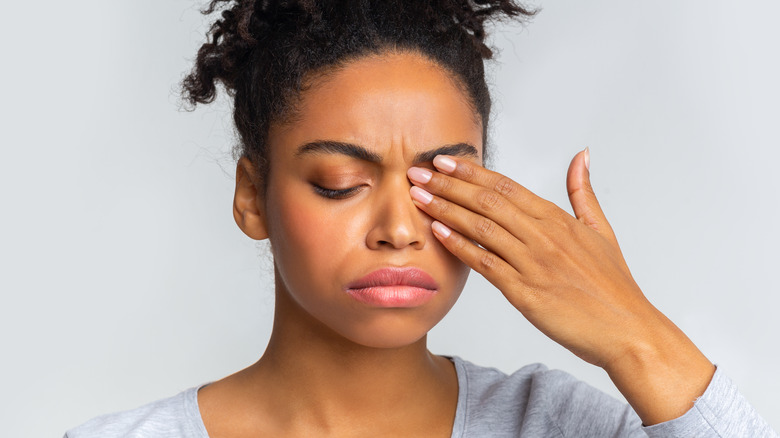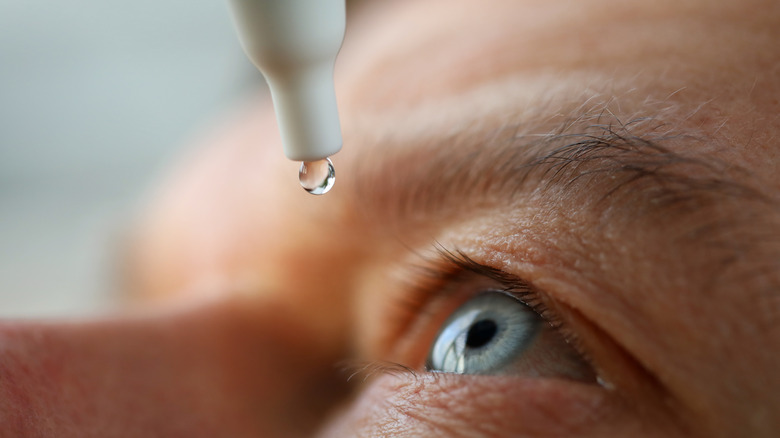The First Thing You Should Do After Scratching Your Eye
While you'd think it would take something large to scratch your eye, like a tree branch or a cat paw to the face, your eye can easily become scratched by a number of smaller contaminants. Dust, wood shavings, dirt, metal particles, paper, or contact lenses can all lead to a scratched cornea (via Mayo Clinic). The cornea is the outermost part of the eye covering the iris and the pupil, and it facilitates the entry of light into the eye, according to Healthline.
Also known as a corneal abrasion, a scratched eye can result in redness, pain, light sensitivity, tearing, a gritty feeling within the eye, or headaches. Depending on the severity of the injury, medical attention may or may not be required. For example, contaminants that penetrate the first or second layer of the cornea are considered minor abrasions and usually take care of themselves within one to three days (via Downtown Eyes).
Deeper abrasions, however, can leave permanent scarring and damage one's vision. In the event of blurred vision, light sensitivity, or extreme eye pain, be sure to seek prompt medical care. This is especially true for eye injuries from plant matter such as pine needles, which can cause inflammation, per Mayo Clinic.
For the time being, let's explore the first thing you should do in response to a minor corneal abrasion.
What to do after scratching your eye
First off, you'll want to know what not to do in response to a scratched cornea. According to All About Vision, refrain from rubbing or patching the eye, as rubbing may inflict further damage and applying a protective eyepatch can enable bacteria growth.
Therefore, the first thing that you will want to do is flush the eye with a sterile saline eyewash (via Downtown Eyes). All About Vision advises against using bottled or tap water due to possible pathogens. Inducing natural tears, by blinking or stretching the upper eyelid down over the lower eyelid, can also help rid the eye of contaminants. Be sure to stick with these gentle methods of rinsing contaminants out of the eye, instead of using tools like tweezers or cotton swabs which may inflict further harm to the eye.
As with most injuries, however, your best offense is defense. By implementing protective strategies, you can help avoid scratching your eye altogether. For example, experts at All About Vision suggest using safety goggles while working in areas with free-floating debris. Additionally, dry eyes can predispose a person to a corneal tear. The use of eye drops, or a humidifier to keep bedroom air moist, can help prevent morning dry eyes and reduce the risk for corneal abrasions (via Mayo Clinic).


